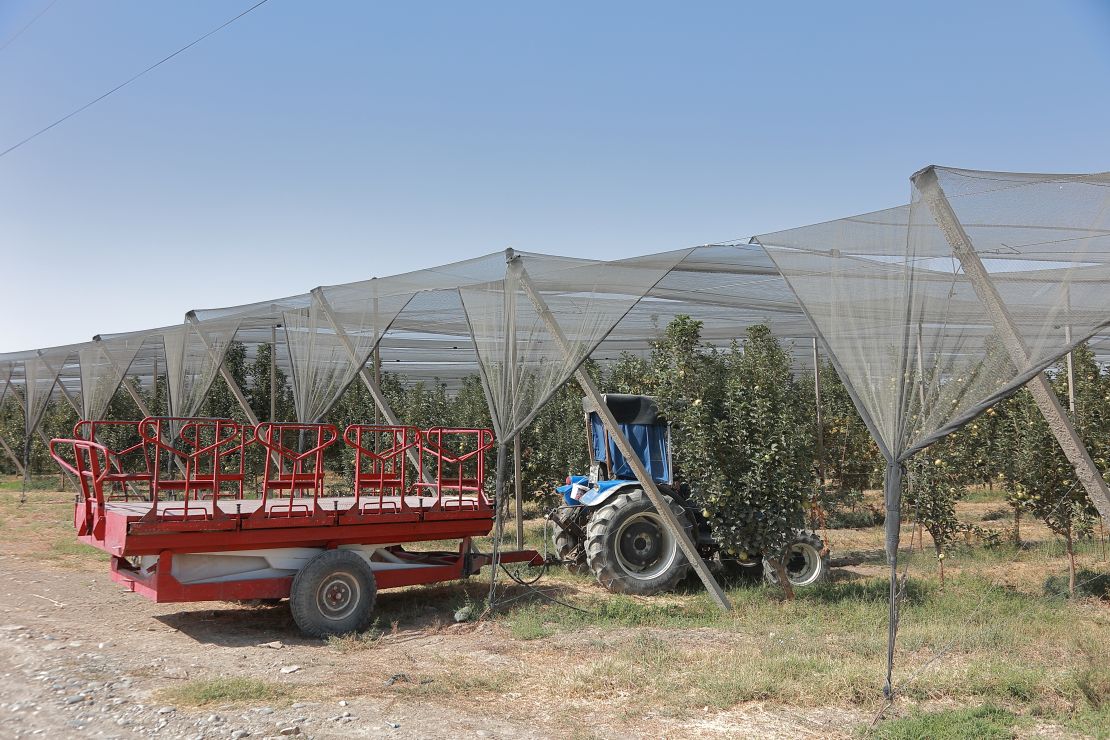FAO facilitates dialogue on financing agricultural transformation

©FAO/Lazizkhon Tashbekov
Today, for the sixth time, ministers from Central Asian countries gathered virtually to share experiences on current agricultural issues. The meeting, facilitated by the Food and Agriculture Organization of the United Nations (FAO) and supported by the Ministry of Agriculture of Uzbekistan, provided a platform for representatives of the five countries to discuss how agricultural finances serve a sustainable increase in production.
The vast landscapes of Central Asia with their various climatic and soil conditions offer great potential for agricultural production. Yet, the abundance of resources is not sufficient, and the expansion of agricultural productivity remained relatively slow since the 1990s. To increase efficiency and sustainability and modernize the sector, further investments are required from farmers themselves, as well as from the state.
“If done in a sustainable manner, faster growth in agricultural productivity can lead to improved food and nutrition security in Central Asia,” said Vladimir Rakhmanin, FAO Assistant Director-General and Regional Representative for Europe and Central Asia.
The agriculture sector not only produces food but provides employment for a significant portion of the population in almost all five Central Asian countries, hence, the development of the sector is key in Kazakhstan, Kyrgyzstan, Tajikistan, Turkmenistan, and Uzbekistan.
“The sustainable functioning and development of agriculture requires significant financial investments both from internal and external sources of the country,” said the Minister of Agriculture of Uzbekistan, Aziz Voitov. - Without them, it is impossible to introduce expensive modern technologies and innovative methods that increase productivity and save resources. In addition, it is important to simultaneously develop social and economic infrastructure in rural areas and invest significant resources in increasing the human potential and competencies of farmers.”
Achieving faster agricultural growth sustainably requires farmers to invest in new technologies, including improved inputs (seeds, plants, and fertilizers), small-scale on-farm works and equipment, as well as breeding stock. To this end, ministers discussed innovative financing schemes to facilitate such development that, at the same time, are environmentally sustainable enhancing biodiversity, soil fertility and efficiency of water use.
Meeting participants also shared proven approaches and promising ideas on how to allocate public funds in a targeted way to ensure maximum impact in spurring agricultural growth. These include infrastructural investments (roads, irrigation system), promoting agricultural research and education, and better natural resource management. Beyond these, changes in the tax schemes, direct and indirect subsidies, tariffs, and import quotas can also influence the development of the agriculture sector. As a starting point, the current system of governmental expenditures on agricultural growth promotion should be screened and better understood.
Organized jointly with the Ministry of Agriculture of the Republic of Uzbekistan, the meeting welcomed recommendations from other relevant UN agencies and international financial institutions, such as the Asian Development Bank (ADB), European Bank for Reconstruction and Development (EBRD), Eurasian Development Bank, International Fund for Agricultural Development (IFAD), Islamic Development Bank (IDB) and World Bank.
15 February 2023, Budapest/Tashkent
